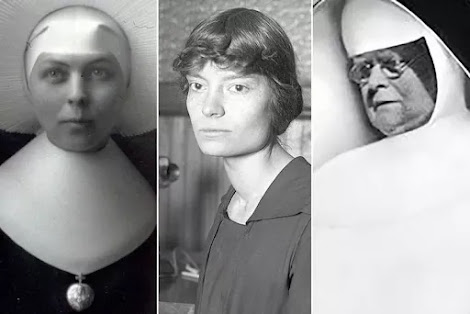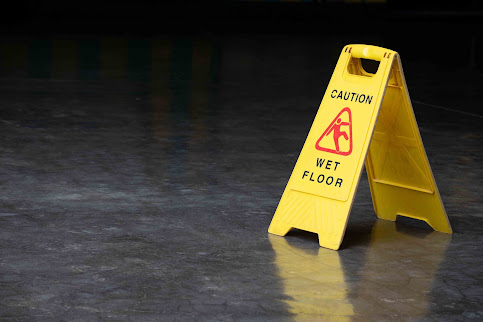And God answered: ‘You take that onion then, hold it out to her in the lake, and let her take hold and be pulled out. And if you can pull her out of the lake, let her come to Paradise’ (Dostoevsky).
Friday, December 27, 2024
Luminous Pluck: Salt and Light in a Hurting World
Friday, July 5, 2024
Quirky Things I Do at Mass
Tuesday, July 2, 2024
But I Digress: A Nursing Pinning Reflection
Digress with abandon. Digress in your caring and comforting, listening and loving, soothing and sacrificing. There’s a hurting world out there that needs you to digress in this way. And you won’t regret it. Promise.
____________________________
Thursday, June 27, 2024
Spinning in Her Grave: Of Dorothy Day, the Catholic Worker, and Gender Ideology
This letter to the New York City Catholic Worker was mailed in early September 2023. A copy was also included in the package of newspapers returned via mail at the same time. To date, I have received no reply. Given the recent release of Dignitas Infinita, I thought it was worth making the letter public at this time.
________________________________
Sunday, May 26, 2024
Catholic Higher Education and the Pursuit of Holiness
Friday, May 17, 2024
Of Shopping Carts and Service: A Pinning Reflection
I was honored to give a faculty reflection at the Saint Mary's College Nursing Pinning ceremony today. The graduating class is the first cohort of students I had the privilege of teaching since coming to Saint Mary's two years ago, and I wanted my reflection to be a gift to them and their families. I wanted it to be something really special and meaningful.
So I ended up writing two.
This was the first one, but I wasn't satisfied that it struck the right note. Neither was my wife, and I trust her opinion, so I buckled down and hammered out another (which I managed to deliver with a minimum of sobs, believe it or not). Still, I kinda' like this one, and I did write it for my students, so I'm going to post it here to make it easy to forward to them.
_____________________________
Welcome honored guests, friends and family (moms and dads particularly), and, of course, you – Saint Mary’s College class of 2024 nursing graduates. Congratulations! You made it!
Thursday, May 2, 2024
Eddie L. Miller, PhD (1937-2024)
________________________________
Saturday, April 13, 2024
Saint Wannabes: Catholic Higher Education and the Pursuit of Holiness
Saints don’t have to found activist movements, start religious orders, or run colleges. They can also become saints by getting the kids to soccer practice, making dinner, and reading bedtime stories.
__________________________
Sunday, April 7, 2024
Dance Marathon II: Racing for Riley
Sunday, March 31, 2024
Springs of Salvation & Safety Precautions
With joy you will draw water from the fountains of salvation (Is.12.3).
This is a PSA for anyone who attended the Easter Vigil last night at St. Matthew Cathedral. I was one of the cantors, and I got to sing four of the seven Psalms.
Maybe you noticed during the second reading that I kept leaning over to my left. Maybe you noticed that I left the sanctuary during the fourth reading and came back during the fifth with a fistful of paper towels. Maybe you noticed that I was a bit distracted as I intoned the fifth and seventh Psalms.
Here's the deal (or "tea," as they say), not that you care: As I sat down after the first Psalm, my alb knocked over my uncapped water bottle, and a sea of Kroger-brand purified H2O suddenly materialized on the marble floor.
Damn. I was sitting up in front of a fairly full house. It was pitch black except for the reader's lamp, and the lectern was right in front of me, so all eyes were fixed in our direction. For liturgical decorum's sake, I could've just left the puddle alone, but my nursing conscience kicked in: A pool of water? On a marble floor? And people of varying ages and mobility possibly moving through the area? No way.
So I did the best I could under the circumstances. Sorry if my fussing about was a distraction to you. Sorry to Anna, the sacristan, who had to clean up the mess I left behind. Sorry, too, to Jon, my co-cantor, who was no doubt bewildered by my strange behavior during the solemn liturgy. And I'm sorry if the damp floor resulted, God forbid, in anyone taking a spill (pun intended). I was glad that there were no messages from law firms on our answering machine this a.m.
Finally, I could use this moist anecdote to segue into an Eastery discourse on baptism and its attendant risks – that allowing yourself to be splashed with salvation means peril, suffering, and death to self – but that would be a metaphorical stretch, so I'll skip it. You're welcome.
Happy Easter! Alleluia!
__________________________
Thursday, March 14, 2024
Nursing School, Prayer, and Avoiding Burnout
Sunday, February 18, 2024
Tithing Pitch
_____________________________________










